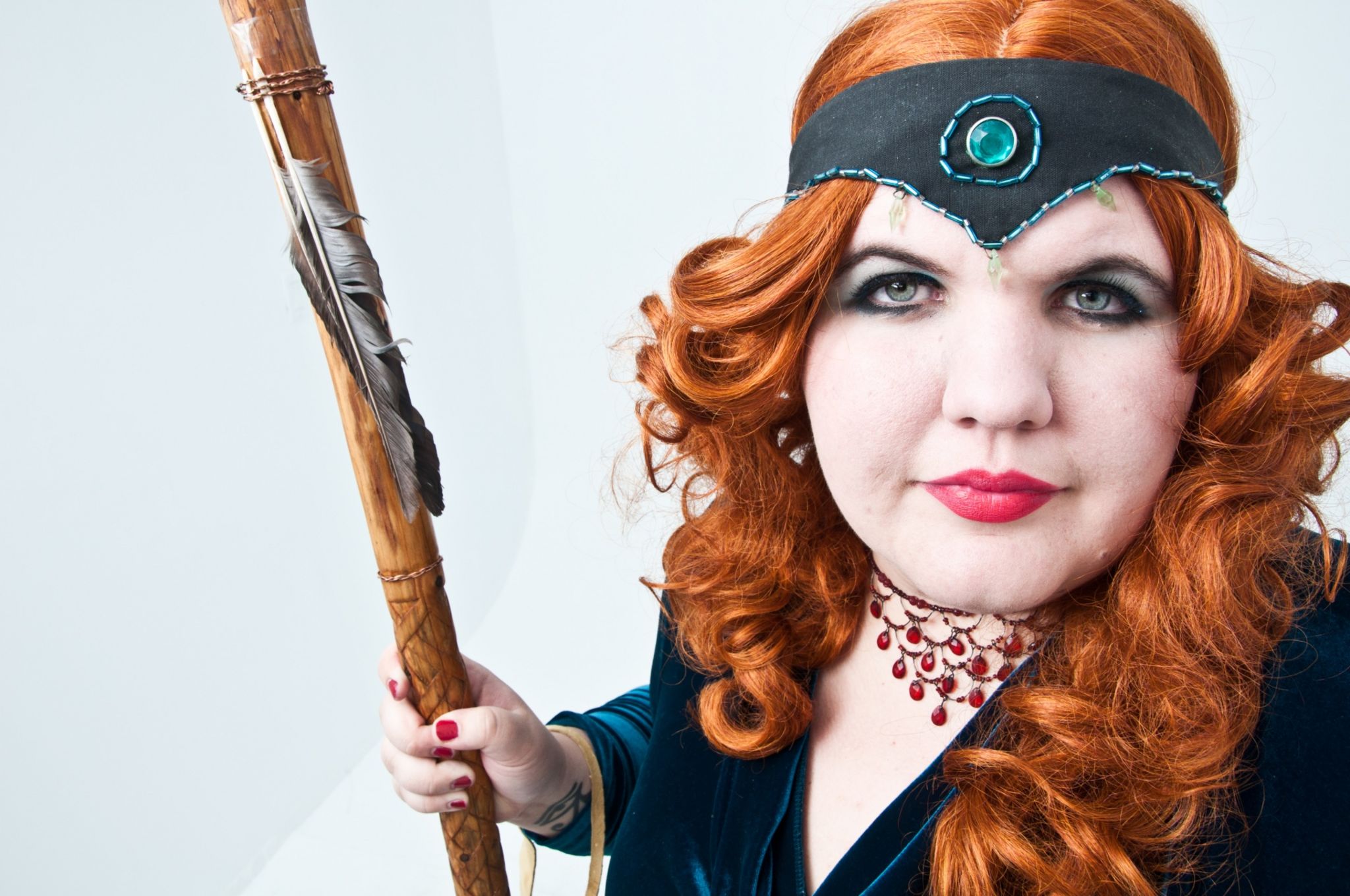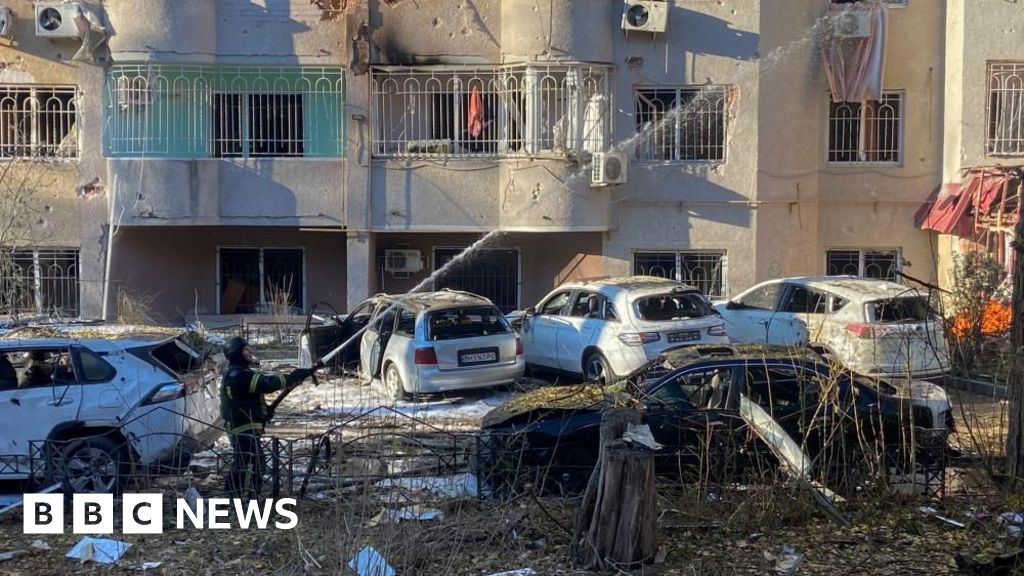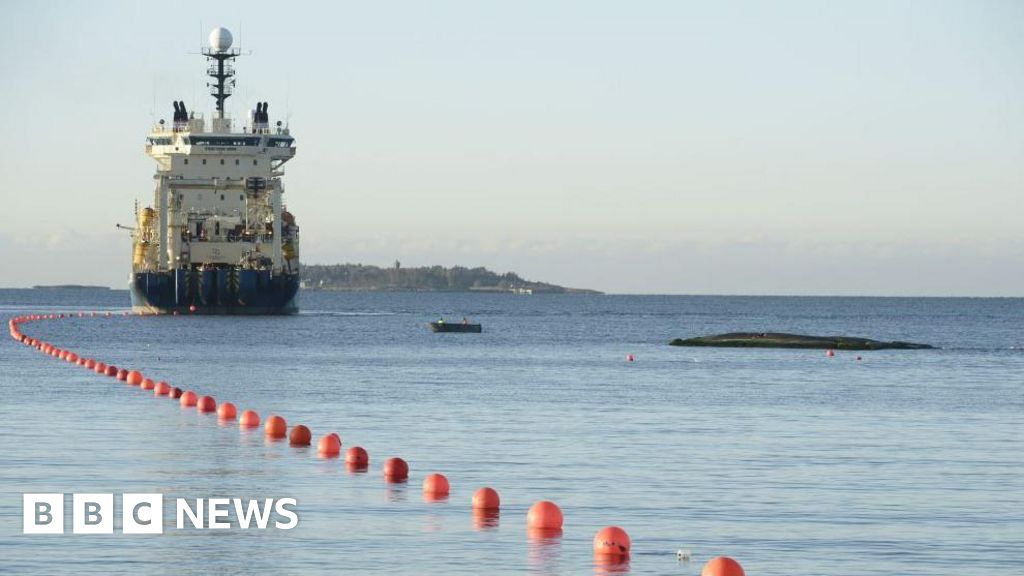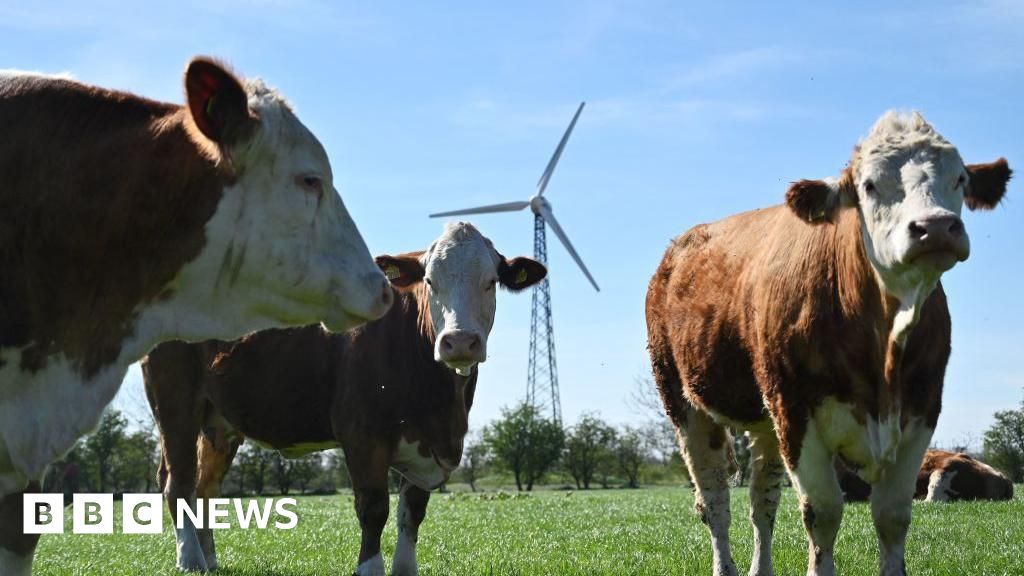ARTICLE AD BOX
 Image source, Laura Lee / My City Photos
Image source, Laura Lee / My City Photos
Katje van Loon is a fan of cosplay
Ten years ago, Katje van Loon wrote a blog post calling for the creation of International Non-Binary Day on 14 July - exactly half way between International Women's Day and International Men's Day. Katje tells BBC gender and identity correspondent, Megha Mohan, why it is important that the day has become a reality.
There's a meme that pops up every now and then about a bird that is called a penguin its whole life. One day the bird meets a doctor who says, "You are not a penguin, you are what is called a swan." The swan is filled with relief. Suddenly, its whole life makes sense.
I had my swan moment in 2011 when I was in my mid-20s.
My grandmother had just died and I was at her apartment organising her things. Trying to distract myself after a while, I fell into an online rabbit hole and stumbled to the Wikipedia page for gender identities. It was here that I first read the definition of "non-binary". In those paragraphs, I learned about people who do not follow binary gender norms, people who feel they exist in an intermediate space outside the definitions of male and female.
"This is me," I thought. "I am non-binary. This has been me my whole life. And I've just never had the words to describe it." I started crying. I knew I had to tell my boyfriend.
Drama was my favourite subject in high school. I enjoyed everything about it, even the heavy lifting at the end of the class. I would get singled out as the "strongest girl in the drama room" when I was assigned to put away the heavy pieces of the set, alongside the boys.
So there I was, moving props along with the dudes, picked out, identified as different from the other girls. But strangely this was the one time being different was a point of pride for me, instead of shame.
In some ways I was like my mother. People called my mother a "handsome" woman, which I realised much later was designed to be an insult referring to her perceived lack of femininity.
She was a single woman, a lawyer and educator. She wasn't like the other mothers from school. She would be as comfortable fixing things around the house as she was while teaching her students, or caring for me.
Image source, Katje van Loon
I was like her in my embrace of non-traditional gender roles. But unlike her I existed somewhere else. It wasn't just that I didn't feel "girly", or was taller, and larger and less feminine. It was more than that: the label "woman" just didn't fit me.
Growing up in the suburbs of Vancouver, Canada, and then later Hawaii, I lost myself in fantasy books, fictional worlds created by writers like Ursula K Le Guin, inhabited by characters with no fixed gender identity. At the age of 12 I began to write, creating my own fictional planets. Over a decade later, a much revised and polished version was published as the first in a series of science fiction novels. In these creative empires, I played around with gender roles; people oscillated between having male or female sexual characteristics. Writing gave me the freedom to imagine a less rigid reality.
As an older millennial, I grew up online. In chat rooms, I found communities of people who talked about sexuality, and came out as bisexual at the age of 14. Online, and later offline, LGBT communities welcomed me as I opened up about my sexuality and I felt I belonged.
Then in my 20s I fell in love with my boyfriend, Nathan. This came at a price. In my opinion, there's no quicker way to get cast out of an LGBT community than being a bisexual woman who is dating a man. People see you as "straight", someone who cannot understand the struggle, and suddenly conversations and events no longer include you. They call it bi-erasure, and it is a very real phenomenon. The invitations drip away. Private groups are set up without you. In my experience, people still understand sexuality in the way they do not understand gender identity.
When I found the Wikipedia page that explained my non-binary identity, Nathan was the first person I wanted to tell, but I was terrified.
When I saw him later that day, I said it quickly.
"So what's changing?" he asked.
"I might use different pronouns," I replied. "Or go by a different name sometimes."
He asked if I was transgender. Was I thinking about physically changing in any way?
"OK, I'll try and remember your pronouns," he said, "but I'm not very good at remembering stuff."
We both laughed, relaxed, the air between us less taut. I explained to him how growing up I had felt mischaracterised as this "other" person, and now I had a name for what I was and immediately, I fitted a little better in my skin.
We were engaged soon after that and married in 2015.
Image source, Zemekiss Photography
For several years I used different pronouns in place of "she/her". I especially liked "zie/zir", which sounded soft and playful. They were gender neutral terms that people were using online that didn't assume the sex of the individual.
For a while I was in favour of singular "they/them" pronouns. But as I saw their use blossom and take off, I began to dislike them, and now I can't stand them. As a writer I take language seriously, and I've read several texts where people use the "they/them" pronouns which have left me genuinely confused as to whether they were speaking about an individual or group. Some writers argue that Shakespeare regularly used "they/them", to which I reply, "Very few people write as well as Shakespeare."
Eventually, my childhood love for fantasy writing was a career, as well as an outlet for my imagined world outside gender norms. In my book Stranger Skies, I write about a goddess who falls from the heavens to a planet that doesn't obey the laws of physics or biology. She discovers that in this world, gender is hard-wired, you are either a man or a woman, but sex is mutable. A person can change their physical body through a small semi-religious ceremony. This allows gay couples to have biological children without medical intervention. I have so much fun exploring these concepts in my writing.
Then, the year after I identified as non-binary, I composed a 153-word blog post about why there should be an International Non-Binary Day. I said it should be in July, half-way between International Women's Day in March and International Men's Day in November. At the time, the blog had a few comments but it hardly set the internet alight.
Image source, Kam Abbott
Image caption,Katje now spends less time on the internet
I forgot about it until several years later when I saw that International Non-Binary Day was officially being observed on 14 July - the very day I suggested in my post. It was being observed by the Human Rights Campaign, Stonewall, the UK Parliament website and even dictionary.com. People cited my reasoning for the date, but only the Non-Binary Wikipedia page named my blog as the inspiration. This stung me. A little acknowledgement would have been nice.
Now, things have changed in my life. I'm more comfortable in myself. It matters less to me when people call me a woman or use the "she/her" pronouns. I used to be really in favour of having a third gender marker on IDs like passports or driver's licences like they have in Argentina, Australia and India - and are proposing in South Africa. But now I'm not so sure. Do I want gender-minority data collected somewhere that is easily accessible for governments? Definitely not. I don't have faith in bureaucracies. I can see why it may be important for some people in certain countries, but not for me.
I also spend a lot less time online. I don't feel comfortable in either conservative or liberal corners of the internet. They eat themselves, waiting for people to say the wrong things. We used to call it Call Out Culture but now it's grown more heads - it's a beast. And it's serving no-one, least of all vulnerable individuals who want to belong but know they can be cast aside at any moment for saying the wrong thing.
Image source, Katje van Loon
Image caption,Katje at Dragon Con, cosplaying Starbuck from Battlestar Galactica
I can imagine what you may be thinking now. If I don't want any new kind of identity cards, and I don't need you to observe my preferred pronouns (still zie/zir), what even is the point of being non-binary? Is it important to have an International Non-Binary Day at all?
We can feel invisible in a world that still hasn't completely understood what we are. So it's nice to have a day that recognises our existence. Does it have to be a day where we're out in the streets marching? No. But it would be nice to get some flowers.
I think being called non-binary is important on an internal level. It's important for me to have those words to describe myself, and knowing who I am allows me to be more comfortable with myself. I want people to be happy with themselves. And if having a day helps you be happy with yourself, that's great. That is the best outcome I could have hoped for from that one-off blog post that I wrote 10 years ago.

 2 years ago
50
2 years ago
50








 English (US)
English (US)